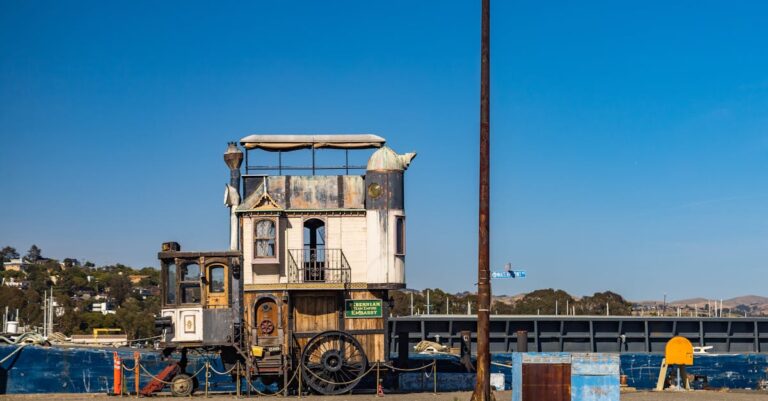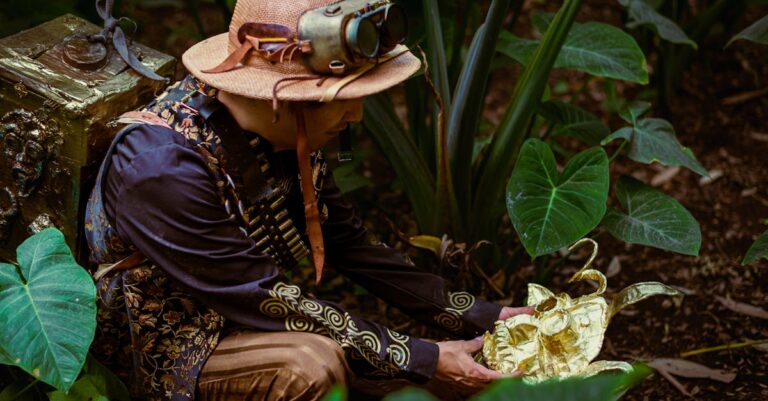
Clara’s boots sank into the mud as she pulled the wagon behind her, the iron wheels groaning under the weight of sacks filled with turnips. The sky hung low, a bruise of clouds pressing down on the fields, and the air smelled of damp earth and distant smoke. She had walked this path since childhood, but today the ground felt different—thicker, as if the land itself held its breath. Her brother Samuel’s absence gnawed at her, a hollow in her chest that no meal could fill. The farm was hers now, though it didn’t feel like ownership. It felt like a debt she hadn’t signed for.
The first sign of trouble came at noon, when the crows stopped cawing. Clara paused at the edge of the woods, her hand hovering over the ax strapped to her belt. The silence was wrong. Too still. She tightened her grip on the wagon’s handle, her knuckles whitening. Then she heard it—a distant clatter, like a metal cup dropped in a church. Her pulse quickened. Not the sound of a farmhand’s tools. This was something else.
She turned toward the farmhouse, her boots crunching over frostbitten grass. The windows were dark, the door ajar as if someone had left in a hurry. A chill skittered up her spine. The barn stood empty, its doors wide open, the hay scattered like discarded paper. She stepped inside, her breath fogging the air. A single lantern flickered on the far wall, casting jagged shadows across the floor. Something was missing—her father’s hat, the spare pitchfork, the rifle from the closet. Her stomach twisted.
A voice cut through the stillness. “You’re not supposed to be here.”
Clara spun, her ax raised. A man stood in the doorway, his uniform a patchwork of mud and faded blue. His face was young, too young, with a scar running from his temple to his jaw. He held a rifle, but it hung loose at his side, as if he’d forgotten it was there.
“Who are you?” she demanded, her voice sharper than she felt.
He didn’t answer. Instead, he stepped closer, his boots crunching on the straw. The smell of gunpowder and sweat surrounded him. Clara took a step back, her heart hammering. “Get out,” she said, though the word came out a whisper.
The man tilted his head, studying her. “You’re the Miller’s daughter,” he said. It wasn’t a question.
She didn’t respond. Her fingers tightened around the ax. The man’s eyes were pale, almost gray, and they held no menace—just a tired curiosity, like he’d seen too much to be afraid anymore.
“Your brother was here,” he said finally. “A week ago.”
Clara’s breath caught. “Where is he?”
The man hesitated. “He left,” he said, but the way he said it—like a confession—made her stomach drop. She took another step back, her boots scraping against the floor. “You’re with the Union,” she realized. It wasn’t a question.
He didn’t deny it. Instead, he lowered his rifle. “I’m not here for you,” he said. “But I need to know if you’ve seen him.”
Clara’s mind raced. Samuel had left? Why? She thought of the letters, the ones he’d written before the war, full of promises to come home. They’d been empty then, but now they felt like a betrayal. “He’s not here,” she said, though the words tasted bitter. “And I don’t care where he is.”
The man stared at her, his expression unreadable. Then he turned and walked out, his boots leaving no mark on the straw. Clara stood there, her ax still in her hands, until the sound of his footsteps faded into the wind.
That night, she burned the letters. The flames licked the paper, turning Samuel’s words to ash. She watched them float into the sky, tiny black birds disappearing into the dark. The fire crackled, and for a moment, she thought she heard his voice—soft, like a whisper carried by the wind. But when she turned, there was nothing but the smoke and the silence.
The next morning, Clara found the note. It was tucked under the door, written in a jagged hand. “He’s in Richmond. If you want to see him, come to the depot at dawn.” Her hands trembled as she read it. Richmond. The enemy capital. A place she’d only heard about in stories, where soldiers died in droves and the air reeked of blood and gunpowder.
She didn’t sleep that night. The note lay on the table, a weight she couldn’t shake. Samuel was alive. But why had he left? Why hadn’t he written? The questions gnawed at her, but she pushed them aside. She had a farm to tend, a life to rebuild. And yet, the thought of him—of what he might be going through—was a fire in her chest.
At dawn, she packed a satchel with bread, a flask of water, and the ax. The sky was pale, the air still heavy with the scent of rain. She walked west, her boots crunching over frozen ground. The road was empty, save for the occasional crow circling above. She thought of the man in the barn, his tired eyes, and wondered if he’d known about Samuel all along.
By midday, she reached the depot. It was a skeletal structure of wood and iron, its platform littered with discarded crates and broken wagons. Soldiers moved like shadows, their uniforms a patchwork of wear and tear. Clara hesitated at the edge of the crowd, her heart pounding. Then she saw him—Samuel, standing near the entrance, his face pale, his uniform frayed at the edges.
He turned as if sensing her presence. Their eyes met, and for a moment, time stopped. He looked older, more worn, but his smile was the same—crooked, like it had been carved into his face. “Clara,” he said, his voice rough from disuse.
She didn’t answer. Her throat felt tight, her feet rooted to the ground. Samuel stepped forward, his hands open, as if he could bridge the distance between them. “I didn’t have a choice,” he said, his voice barely above a whisper.
“You always have a choice,” she shot back, though the words felt hollow. She wanted to hate him, to blame him for leaving, but all she felt was a deep, aching sorrow.
Samuel looked down, his shoulders slumping. “I didn’t want to go,” he said. “But they took me. You know how it is.”
Clara’s eyes stung, but she blinked the tears away. “You could have written,” she said, her voice shaking. “You could have told me you were alive.”
Samuel winced, as if the words had cut him. “I tried,” he said. “But the letters never got through.”
A silence stretched between them, thick and heavy. Clara wanted to turn away, to walk back to the farm and forget this moment ever happened. But something in Samuel’s eyes—something familiar—held her there.
“Come with me,” he said suddenly, his voice urgent. “I’m leaving tonight. If you want to come, now’s the time.”
Clara’s breath caught. The idea of leaving, of abandoning everything she’d known, was terrifying. But the thought of staying—of watching the war consume her life piece by piece—was worse. She looked at Samuel, at the man he’d become, and wondered if she could trust him.
“I don’t know,” she said, her voice barely a whisper.
Samuel reached for her hand, his fingers cool against her skin. “You don’t have to decide now,” he said. “But I need you to know—this isn’t the end. Not for us.”
Clara stared at their hands, the weight of the moment pressing down on her. The war had taken so much from her, but maybe—just maybe—this was a chance to take something back.
She nodded, though the decision felt like a leap into the unknown. Samuel’s smile returned, brighter this time, and for the first time in weeks, Clara felt something close to hope.


